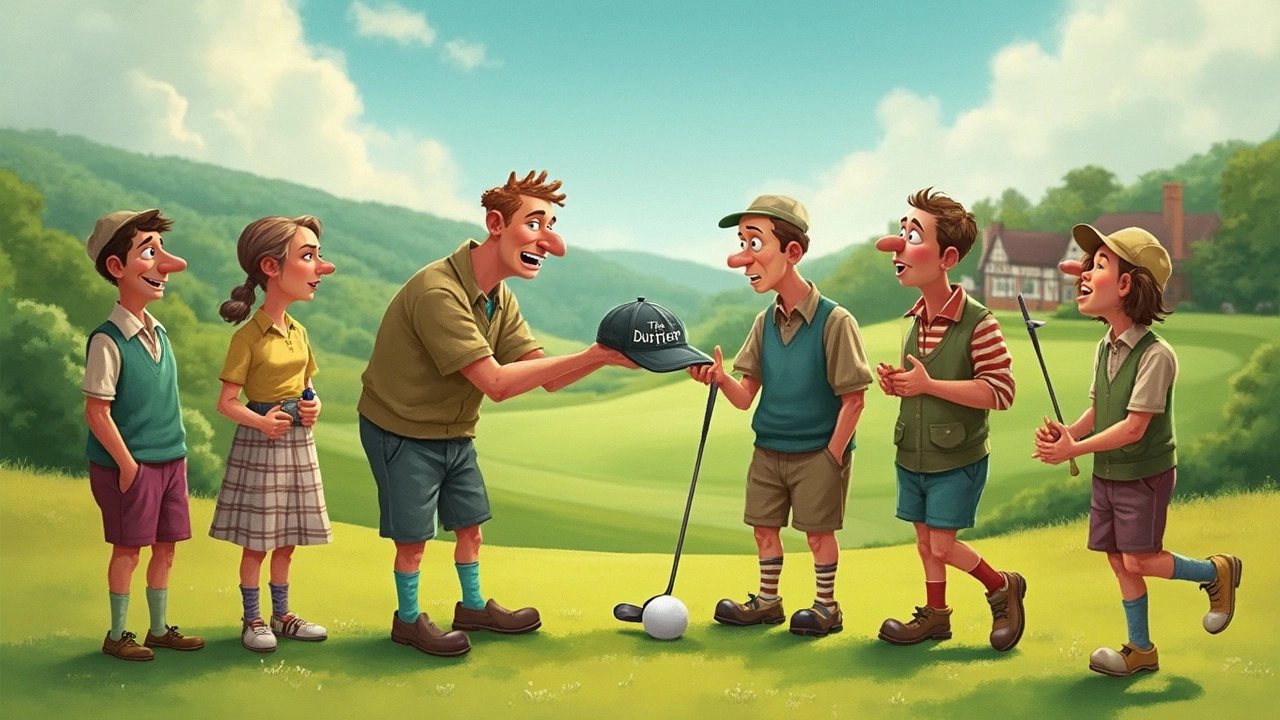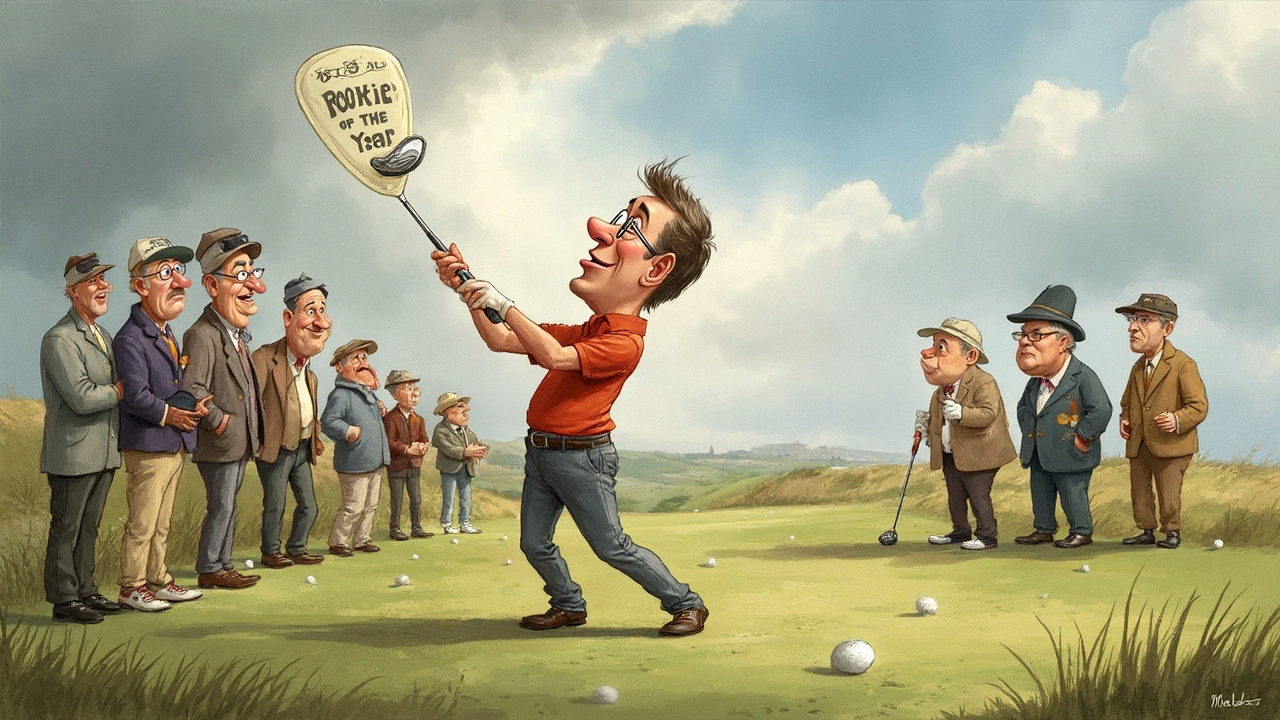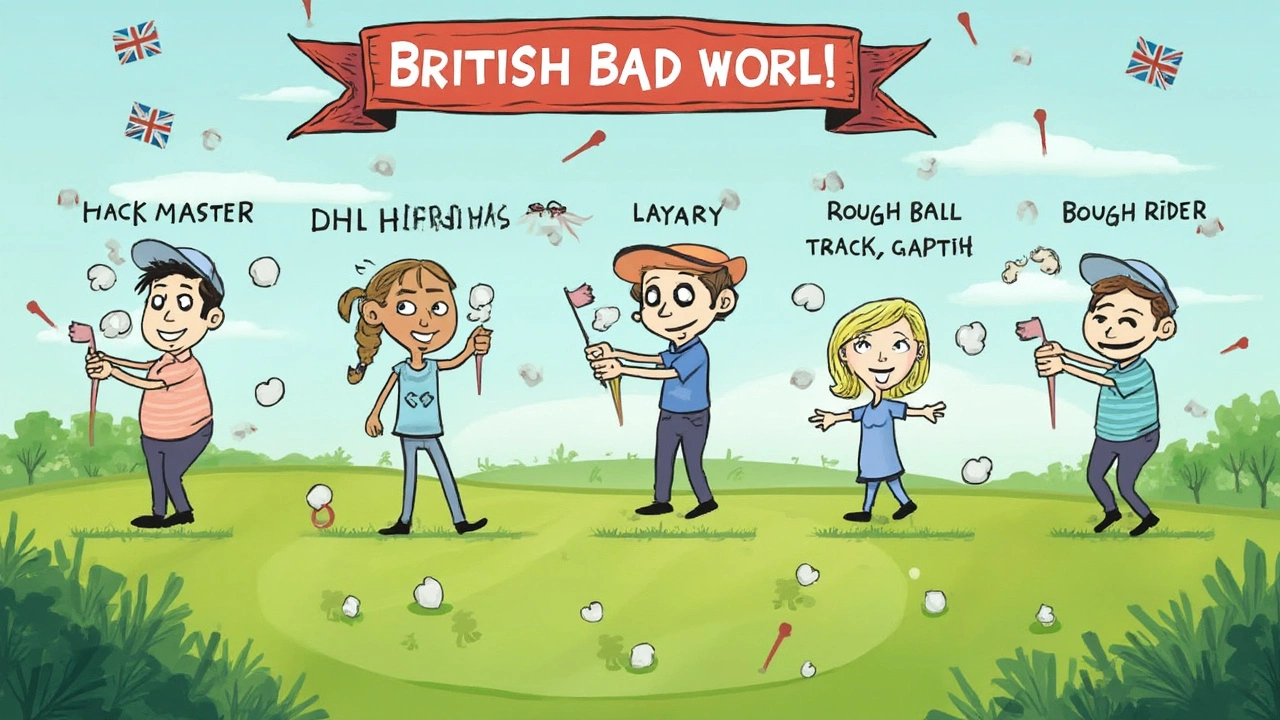What Do You Call Someone Who Is Bad at Golf? Funny Golf Terms Explained

Ever overheard someone on the golf course call their friend a “duffer,” “hacker,” or “weekend warrior”? Those are just a few friendly (sometimes too honest) nicknames people toss around when someone’s having a bad day on the links. Golf has its own unique language for less-than-great players, and it’s honestly half the fun.
If you’re nervous about being the newbie or even if you just want to know what your golf buddies are really saying, learning these nicknames can actually help you feel more at ease. It’s not about making fun—okay, maybe a little—it’s really about bonding and finding some humor in those golf struggles we all go through. And trust me, even the pros have been called a few names in their day.
- Classic Nicknames for Bad Golfers
- Golf Slang from Around the World
- Why Golfers Struggle (And Why It’s Totally Normal)
- Tips to Boost Your Golf Game
- Laugh It Off: Embracing the Fun Side of Golf
Classic Nicknames for Bad Golfers
Every sport has its own slang, and golf is no exception. The golf terms people use for players who just can’t seem to find the fairway are pretty creative. Some of these nicknames have been around longer than many of the clubs in your grandpa’s garage.
- Duffer: This is probably the most common word for someone who struggles with their swing or just can’t get the ball moving in the right direction. "Duffer" has been around since the 19th century and is basically a badge for beginners or anyone having a rough day.
- Hacker: A hacker isn’t actually a computer whiz here—it’s a golfer who takes big messy swings, often tearing up more grass than they hit balls. If you’re called a hacker, it just means consistency isn’t your thing yet (and you might leave the course with muddy shoes).
- Rabbit: This one is a little less about skill and more about nerves. “Rabbits” tend to get anxious on the course, so their shots are jumpy or rushed. This term pops up especially among casual players.
- Weekender (or Weekend Warrior): The person who shows up only on weekends and needs half the course to warm up. These golfers aren’t always terrible, but they’re rusty enough to earn the nickname.
- Snowman Maker: When you make an 8 (which looks like a snowman) on a hole, the name kind of sticks. No one wants to keep making snowmen, but it happens to the best (and worst) of us.
Some groups even invent their own names: “air mail artist” (for shots that go way over), “worm burner” (super low shots that barely leave the grass), or even “ball hunter” for someone always in the trees. If you golf with friends, nicknames can get really personal depending on your shot history.
| Nickname | What It Means | Popularity (US, 2024) |
|---|---|---|
| Duffer | Beginner or unskilled golfer | Very common |
| Hacker | Erratic, inconsistent player | Common |
| Rabbit | Nervous or jittery player | Less common |
| Weekender | Plays rarely, usually on weekends | Common |
| Snowman Maker | Regularly scores 8 on holes | Noticed among friends |
Nicknames usually stick because they’re funny, not mean. If you hear one thrown your way, odds are you’re in good company. Even golf legends had to start somewhere!
Golf Slang from Around the World
Golf lingo isn't just something you hear at your local club. It changes from country to country, and every region has its own way of poking fun at a golf beginner who's having a tough round. If you travel or even just chat with golf fans online, you'll likely run into some of these colorful terms.
Here’s a little sample of what golfers say worldwide:
- United States: The classics here are "hacker," "duffer," and "chopper." You'll hear these all over American courses, usually with a laugh rather than actual judgment.
- United Kingdom: In the UK, it's not unusual to hear "rabbit" for a shaky starter, or "bandit"—though that often means a player who pretends to be worse than they are to win prizes.
- Australia: Aussies will call a mishitting rookie a "kookaburra" or sometimes a “mug,” which means someone who doesn’t really know what they’re doing.
- Japan: In Japan, "hekonai" literally means someone who never gets the ball off the ground. Gentle but clear.
- South Africa: South Africans sometimes say "hack," but you might also hear "plonker" as a friendly jab at someone flubbing their shot.
Golf terms for struggles can also get pretty creative. Ever heard of a "snowman"? That's a common term in the U.S. for scoring an eight on one hole (since the numeral 8 looks like a snowman). Or how about "air shot"—missing the ball completely? That’s universal. There’s even "tree-mendous" (when you spend way too much time in the woods chasing lost shots), which you can spot in golf joke books everywhere.
Golfers naturally love to label those rookie mistakes, but here’s the real deal: everyone’s been there. A 2023 survey by the National Golf Foundation showed 39% of new golfers took up the game because their friends played, so almost everyone gets called a nickname or two while learning.
| Country | Popular Slang for Bad Golfer |
|---|---|
| USA | Hacker, Duffer, Chopper |
| UK | Rabbit, Bandit |
| Australia | Kookaburra, Mug |
| Japan | Hekonai |
| South Africa | Hack, Plonker |
So next time someone calls you a "duffer" or a "kookaburra," just remember—they’re probably laughing with you, not at you. And you’re officially part of the club, bad shots and all.

Why Golfers Struggle (And Why It’s Totally Normal)
A lot of people think golf looks easy until they try to hit a tiny ball with a long club toward a far-off hole—then reality hits hard. Messing up isn’t a sign you’re hopeless; it’s actually part of getting better. Even Tiger Woods has had shots he’d like to forget. That’s because golf isn’t just about strength or smarts—it’s a weird mix of timing, patience, and coordination. Almost everyone starts out making more mistakes than great shots.
One of the biggest reasons people struggle is that there are a ton of moving parts. You have to line up your stance, grip the club right, swing smoothly, and time everything down to the split second. Just the tiniest hiccup can send your ball into the trees. According to the USGA, the average golfer’s handicap (that’s the way golf tracks skill) hovers around 14-15 for men and 27 for women. That means most folks are nowhere close to perfect—if you’re a golf beginner, you’re in good company.
| Common Struggles | Percentage of Golfers Affected |
|---|---|
| Slicing the ball | Over 60% |
| Difficulty with putting | About 55% |
| Struggling with bunker shots | Roughly 50% |
| Choking under pressure | Nearly 40% |
Sometimes it’s not even the swing that messes people up—it’s nerves. That first tee, when all eyes are on you? Instant sweaty palms, guaranteed. Pros deal with this too. That’s why you’ll see even serious players take practice swings and settle their nerves before a big shot.
On top of that, golf is played outside. Wind, rain, bright sun—weather messes with your game more than you’d think. My kids, Callum and Talia, tried their first putt on a super windy day, and not one ball made it straight. We laughed, then tried again, because that’s basically golf in a nutshell: try, mess up, try again.
Here’s the thing: no one gets good by hiding their mistakes. Every “bad” golfer has the potential to be pretty decent with practice (and, honestly, a sense of humor). If you’re struggling, you’re learning. That is 100% normal in this sport.
Tips to Boost Your Golf Game
If you’re tired of being the "hacker" in your group, some small changes can make a big impact. Even the most confident golfers started somewhere, and the real secret is to keep things simple and consistent. Here’s how to get better without feeling lost or overwhelmed.
- Golf beginner tip: Spend most of your practice time on the short game. Believe it or not, about 60% of strokes come from putting and chipping. Head to the practice green with your putter and a wedge instead of grinding hours with your driver.
- Grip matters. Check your grip before every shot. A neutral grip (not too strong or weak) lets you swing naturally. If you’re slicing or hooking, grip adjustments can fix it without overhauling your whole swing.
- Use alignment sticks or even a club on the ground to make sure your feet, hips, and shoulders point where you want the ball to go. Most bad shots actually start way before the club ever hits the ball—aiming is everything.
- Don’t rush your backswing. Slowing down lets you stay balanced. When you’re nervous or frustrated, it’s easy to speed up and lose control. Try counting “one” on the way back and “two” as you swing through—sounds silly, but it’s proven to work.
- Get to know your distances. Write down how far you hit each club on your phone or a small notepad. This removes guesswork, especially under pressure.
- Lessons aren’t just for total newbies. A swing check-in with a teaching pro—even just once or twice—can save you years of frustration. Lots of courses offer short group clinics too, so you don’t have to go solo.
- And don’t forget the mental side. Bad shots happen to everyone. Try to shake it off by focusing on the next hole—Callum and Talia always laugh when I tell them my last shot was “just a practice swing.”
Stick with it. Golf’s hard, but that’s what makes small wins so satisfying. Find one tip that works and use it every round. Before you know it, you’ll feel way less like the group’s "duffer" and more like you actually belong out there.

Laugh It Off: Embracing the Fun Side of Golf
There’s a reason you hear laughter as much as clinking clubs at the golf course—people know that being a bad golfer is basically a rite of passage. If you take yourself too seriously, every missed putt will make you miserable fast. Pretty much everyone, even the folks on TV, started off topping balls or losing count after double digits.
Turns out, according to the National Golf Foundation, more than one-quarter of beginners quit within the first year, mainly because they put too much pressure on themselves. But those who keep things light—using funny nicknames, betting lunch on the worst shot, or just laughing at the sand trap disasters—are the ones who stick around and actually get better.
Here are a few ways to keep golf fun, no matter your scorecard:
- Make silly bets—winner buys drinks, loser has to wear the goofiest hat next round.
- Keep a running joke for the biggest slice or weirdest excuse (“I blame the ducks on hole 8!”).
- Celebrate every fluke: Did you barely whiff the ball? Call it a ‘practice swing’ and move on.
- Bring your kids or buddies as cheerleaders—because golf is way less stressful when you’re surrounded by support and laughter.
If you want proof you’re not alone, check out these numbers from the USGA on average golfer scores:
| Skill Level | Average Score (18 holes) |
|---|---|
| Beginner | 108 |
| Intermediate | 95 |
| Advanced | 80 |
Most regular players are nowhere near par. So if you’re hacking it around at 100-plus, you’re actually in good company. Golf isn’t just about the perfect swing or the lowest score; it’s about stories, shared laughs, and just enjoying the fresh air. The best golfers I’ve met—kids included—are the ones who can shrug off a disaster shot and keep having fun. Give yourself permission to be bad, or even laugh about that ‘air shot’ in front of everyone. You’ll probably play better once you relax.
